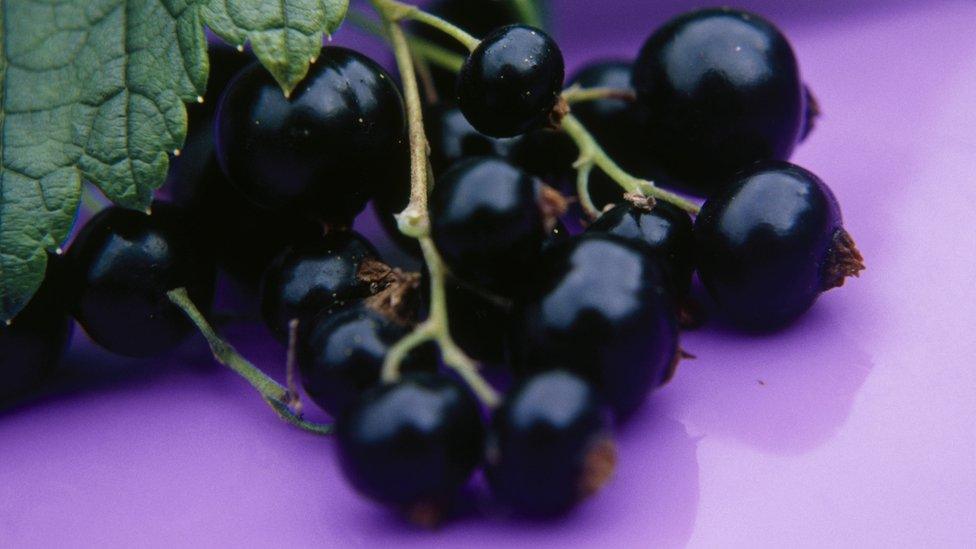Blackcurrant harvest window almost halves - why?
- Published
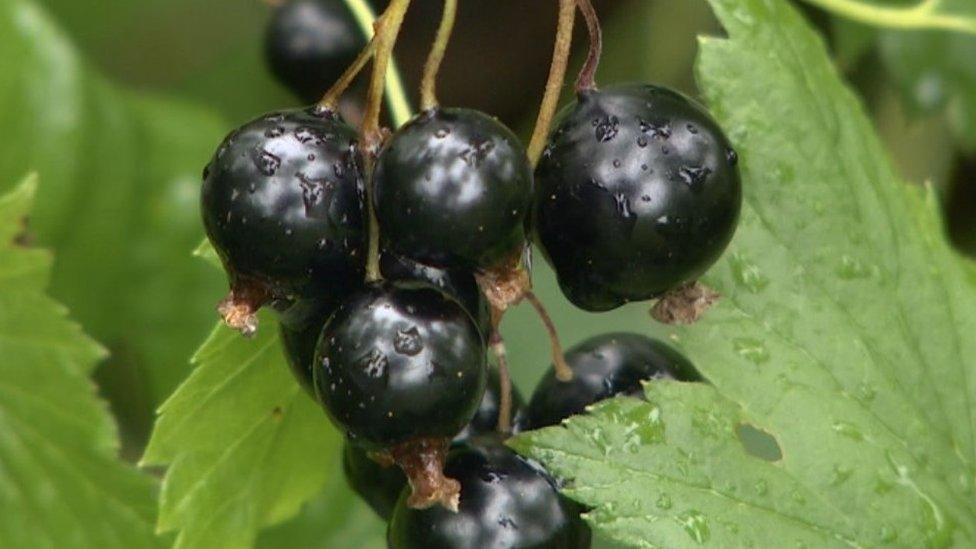
Fourth-generation farmer Jo Hilditch has seven different blackcurrant varieties on her farm
Normally the Herefordshire blackcurrant harvest is a lively five-week event in early summer.
This year it is a soggy three-week scramble in between the very worst of the downpours. So why has the harvest window almost halved?
I went to talk to fourth-generation farmer Jo Hilditch to find out. She farms about 130 acres of blackcurrants producing 300 tonnes of berries on the Whittern Estate in north Herefordshire.
The current rainy weather is not ideal for harvest, but unlike other crops, the team here can at least carry on work in the rain.
However, if it gets really wet, even the blackcurrant farmers have to stop, as they get too many leaves from the bushes mixed in with the berries.
It is not the wet summer that is the issue, Jo told me, rather that winter was not cold enough.
She has seven different blackcurrant varieties on her farm, which all ripen at slightly different times. This spreads out the harvest and allows Jo to work efficiently to gather in the berries.
But all the varieties need a nice cold spell in winter, at least 2,000 hours where the temperatures are 7C (44.6F) or lower.
This year Jo said they only got about 1,700 hours on the farm. That means you get an uneven spread of flowers and then berries.
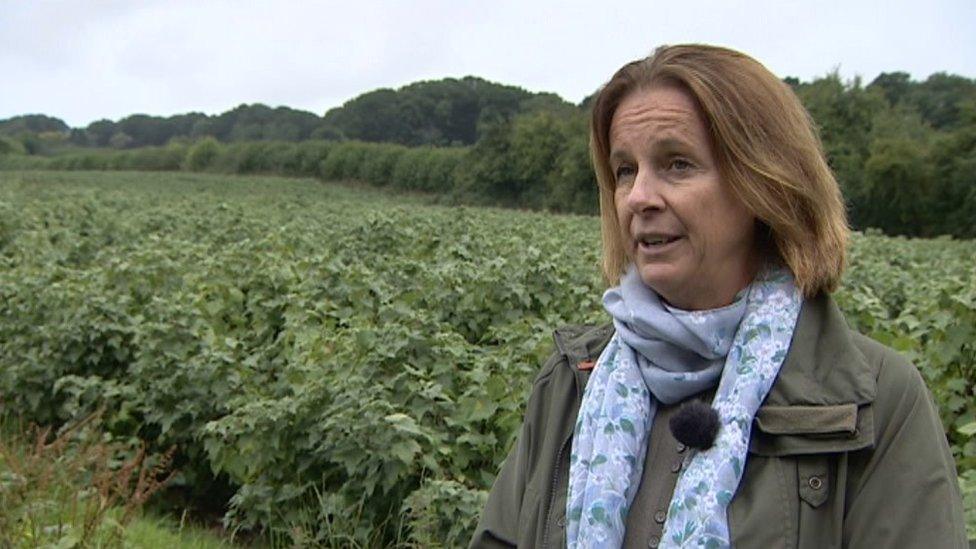
Overall, Jo is confident the harvest will be safely gathered in
In this year's harvest the result is some berries have already ripened and dropped to the ground. Others are not ripe at all.
Everything else is coming all at once, which is why it is all hands to the pump and the small but perfectly-formed berry harvest is racing up and down lines of bushes, even in a bit of a downpour.
Overall, Jo is confident the harvest will be safely gathered in and the blackcurrants sent off to their final destination.
A total of 90% of them end up being used for Ribena, but Jo freezes and sells the rest and even produces her own blackcurrant liqueur cassis, for adding to a glass of something fizzy.
The fascinating thing about the blackcurrant harvest, though, is how it is a little insight into the bigger problems all farmers are facing growing their crops in a changing climate.
It makes work harder for some and means thinking smarter about everything from how we harvest to the varieties of plants we grow.
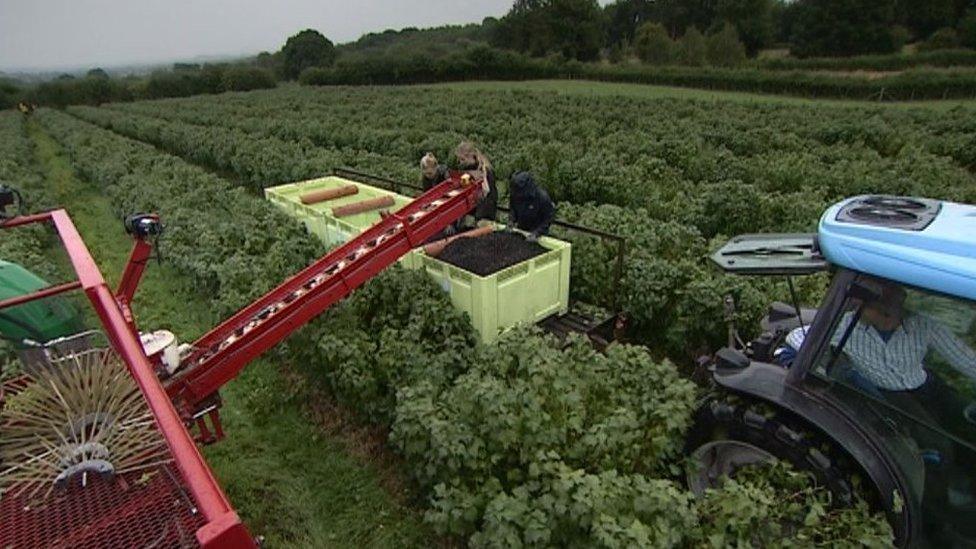
The berry harvest has been racing up and down lines of bushes

Follow BBC West Midlands on Facebook, external, Twitter, external and Instagram, external. Send your story ideas to: newsonline.westmidlands@bbc.co.uk, external
- Published29 July 2022
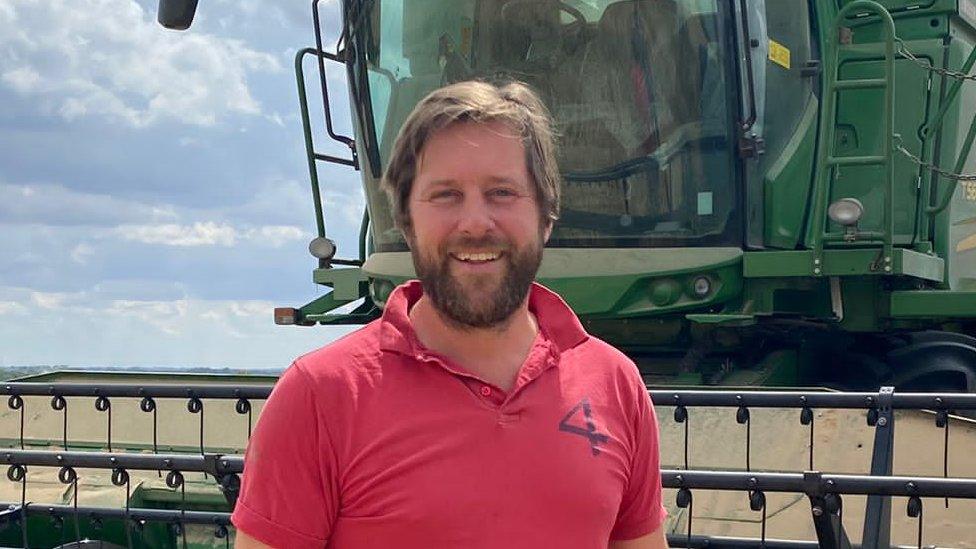
- Published17 December 2018
